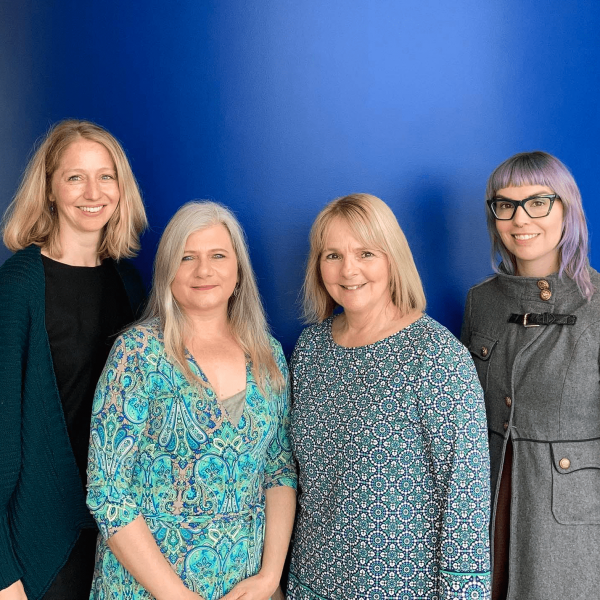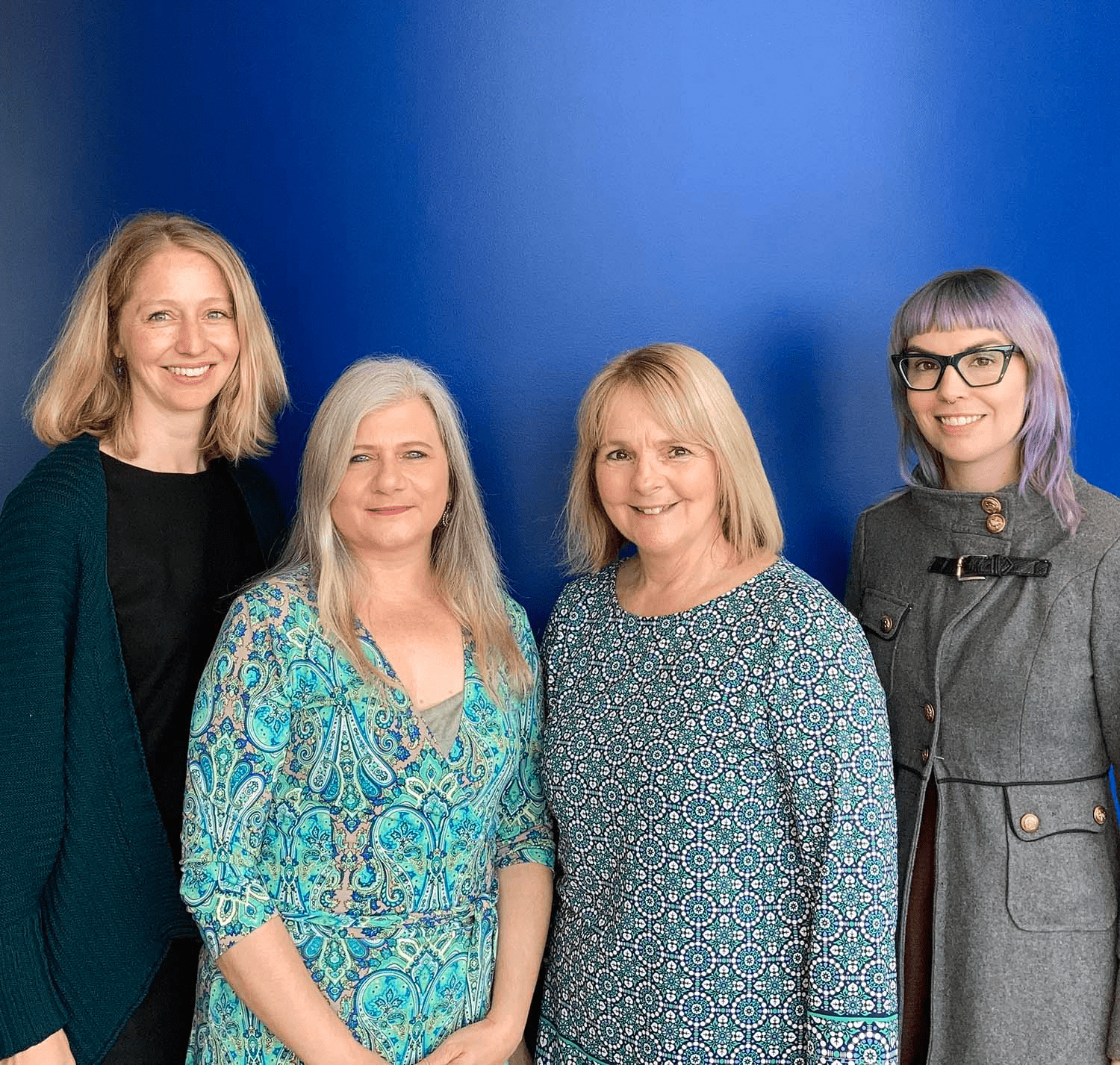
Dr Stephanie Hardacre
Research Officer
Centre of Excellence for Equity in Higher Ed
- Email:stephanie.hardacre@newcastle.edu.au
- Phone:N / A
Career Summary
Biography
Stephanie Hardacre was awarded her PhD in social psychology from the University of Newcastle in mid-2020. Her PhD research explored political solidarity and leadership processes in the context of gender equality, examining how leader gender shapes the capacity of male and female leaders to mobilise individuals for gender equality as a common cause. Stephanie is currently a postdoctoral research fellow within the Research School of Psychology at the Australian National University, working on an ARC-funded Discovery Indigenous project investigating online strategies for increasing the social integration and mental wellbeing of working-class university students. Stephanie is also part of a team at the University of Newcastle’s Centre of Excellence for Equity in Higher Education, exploring the impact of gender-based violence on students’ access to and participation in higher education.
Qualifications
- Doctor of Philosophy in Psychology, University of Newcastle
- Bachelor of Psychology, University of Newcastle
Keywords
- equity in higher education
- gender-based violence
- mental health
- quantitative research
- social class
- social identity
- social media
- social psychology
Languages
- English (Mother)
Fields of Research
| Code | Description | Percentage |
|---|---|---|
| 520505 | Social psychology | 70 |
| 529999 | Other psychology not elsewhere classified | 30 |
Professional Experience
Professional appointment
| Dates | Title | Organisation / Department |
|---|---|---|
| 1/6/2020 - | Research Assistant | School of Humanities and Social Science - Faculty of Education and Arts - The University of Newcastle Australia |
| 31/3/2016 - | Research Assistant | School of Psychology, Faculty of Science & IT, University of Newcastle Australia |
Teaching
| Code | Course | Role | Duration |
|---|---|---|---|
| PSYC6050 |
Foundations of Applied Psychology 2 School of Psychology, Faculty of Science & IT, University of Newcastle Applied psychology is concerned with predicting people’s behaviours and attitudes in a variety of life and work settings. This knowledge informs ways to improve wellbeing, effectiveness, and productivity of individuals, groups, and organisations. The course will examine the research methods used in psychology to study and measure variables that influence our attitudes and behaviours, how tests and surveys are used and interpreted, and what makes a good psychological instrument. This course will also provide instruction in report writing and look at methods of evaluating the effectiveness of programs, as well as an overview of the key areas of applied Psychology for students with no prior background in the discipline. |
Course Coordinator | 24/2/2020 - 31/7/2020 |
| SOCS2400 |
Applied Social Research School of Humanities and Social Science - Faculty of Education and Arts - The University of Newcastle In this course students develop a comparative understanding of social science methods for the design of social inquiry. This course concentrates on the collection and analysis of quantitative data and the reporting of results. Students develop an understanding of the uses, strengths and limitations of various research strategies and approaches to conducting social inquiry, and develop skills necessary for designing social survey research tools, data processing and analysis, the interpretation of numerical data and report writing. The computer workshops will include an introduction to appropriate software packages such as SPSS. The course does not require previous statistical knowledge. |
Course Coordinator & Lecturer | 3/8/2020 - 31/12/2020 |
Publications
For publications that are currently unpublished or in-press, details are shown in italics.
Journal article (6 outputs)
| Year | Citation | Altmetrics | Link | ||||||||
|---|---|---|---|---|---|---|---|---|---|---|---|
| 2023 |
Coffey J, Burke PJ, Hardacre S, Parker J, Coccuzoli F, Shaw J, 'Students as victim-survivors: the enduring impacts of gender-based violence for students in higher education', Gender and Education, 35 623-637 (2023) [C1]
|
Nova | |||||||||
| 2023 |
Burke PJ, Coffey J, Parker J, Hardacre S, Cocuzzoli F, Shaw J, Haro A, ' It s a lot of shame : understanding the impact of gender-based violence on higher education access and participation', Teaching in Higher Education, (2023) [C1] This paper draws on new empirical research examining the impact of gender-based violence (GBV) on students' experiences of higher education. While GBV across the life-course ... [more] This paper draws on new empirical research examining the impact of gender-based violence (GBV) on students' experiences of higher education. While GBV across the life-course is an extremely prevalent and pressing social problem, it has been invisible within higher education. Indeed, experiences of GBV, which may profoundly shape access to and participation in higher education, are largely perceived as irrelevant to student equity, unless experienced on campus. Institutional silence around the impact of GBV on student equity is related to the gender injustice of misrecognition, whereby the social problem of GBV is located at the personal level. This manifests in the social emotion of shame, experienced at the personal level as disconnection, isolation and not belonging. This paper draws from our analysis of 47 in-depth interviews with student victim/survivors exploring their experiences of higher education to illuminate how deficit discourses and stigmatisation intersect to reproduce gender injustice in higher education.
|
||||||||||
| 2023 |
Evans O, Hardacre S, Rubin M, Tran M, 'Content appraisal and age moderate the relationship between passive social media use and mental ill-being', Frontiers in Psychology, 14 [C1]
|
Nova | |||||||||
| 2022 |
Hardacre S, Subasic E, 'With great power comes great responsibility: Repositioning gender (in)equality as men's burden or men's responsibility', TPM - Testing, Psychometrics, Methodology in Applied Psychology, 29 97-122 (2022) [C1]
|
Nova | |||||||||
| 2018 |
Hardacre SL, Subasic E, 'Whose Issue is it Anyway? The Effects of Leader Gender and Equality Message Framing on Men's and Women's Mobilisation towards Workplace Gender Equality', Frontiers in Psychology, 9 (2018) [C1]
|
Nova | |||||||||
| 2018 |
Subasic E, Hardacre S, Elton B, Branscombe N, Ryan M, Reynolds K, 'We for She: Mobilising men and women to act in solidarity for gender equality', Group Processes and Intergroup Relations, 21 707-724 (2018) [C1]
|
Nova | |||||||||
| Show 3 more journal articles | |||||||||||
Conference (1 outputs)
| Year | Citation | Altmetrics | Link |
|---|---|---|---|
| 2022 | Bezzina A, Hardacre S, Watson T, James C, 'Overweight and Obesity in Australian Mining', SAFETY AND HEALTH AT WORK (2022) |
Report (1 outputs)
| Year | Citation | Altmetrics | Link | ||
|---|---|---|---|---|---|
| 2021 |
Cook J, Bunn M, Burke PJ, Cuervo H, Hardacre S, Blunden J, 'Housing matters: Understanding the housing experiences of undergraduate regional, rural and remote students living outside the family home', National Center for Student Equity in Higher Education, 77 (2021)
|
Thesis / Dissertation (2 outputs)
| Year | Citation | Altmetrics | Link |
|---|---|---|---|
| 2020 | Hardacre S, Mobilising Men and Women in Support of Workplace Gender Equality: Does Leader Gender Matter?, University of Newcastle (2020) | ||
| 2015 | Hardacre S, Mobilising men and women In support of workplace gender equality: Intersection of solidarity and leadership, University of Newcastle (2015) |
Grants and Funding
Summary
| Number of grants | 1 |
|---|---|
| Total funding | $5,000 |
Click on a grant title below to expand the full details for that specific grant.
20221 grants / $5,000
Inter-agency collaboration to develop post-crisis pathways to highereducation for victim-survivors of domestic violence$5,000
Funding body: College of Human and Social Futures | University of Newcastle
| Funding body | College of Human and Social Futures | University of Newcastle |
|---|---|
| Project Team | Prof Penny Jane Burke (lead), Mrs Felicity Cocuzzoli, Dr Julia Coffey, Dr Jean Parker, Dr Stephanie Hardacre |
| Scheme | CHSF - Matched Funding |
| Role | Investigator |
| Funding Start | 2022 |
| Funding Finish | 2022 |
| GNo | |
| Type Of Funding | Internal |
| Category | INTE |
| UON | N |
News
News • 20 Jun 2021
Understanding the impact of gender based violence on access to and participation in higher education
A team at the University of Newcastle, Professor Penny Jane Burke, Dr Julia Coffey, Felicity Cocuzzoli and Dr Stephanie Hardacre, have launched a new research agenda to explore the impact of gendered violence on access to and participation in higher education.
Dr Stephanie Hardacre
Positions
Research Officer
Centre of Excellence for Equity in Higher Education
Centre of Excellence for Equity in Higher Ed
College of Human and Social Futures
Casual Research Assistant
Centre of Excellence for Equity in Higher Education
Centre of Excellence for Equity in Higher Ed
College of Human and Social Futures
Contact Details
| stephanie.hardacre@newcastle.edu.au | |
| Phone | N / A |
| Mobile | N / A |
| Fax | N / A |
| Links |
Research Networks Research Networks Google+ |
Office
| Room | IDC |
|---|---|
| Building | IDC |
| Location | Callaghan University Drive Callaghan, NSW 2308 Australia |


